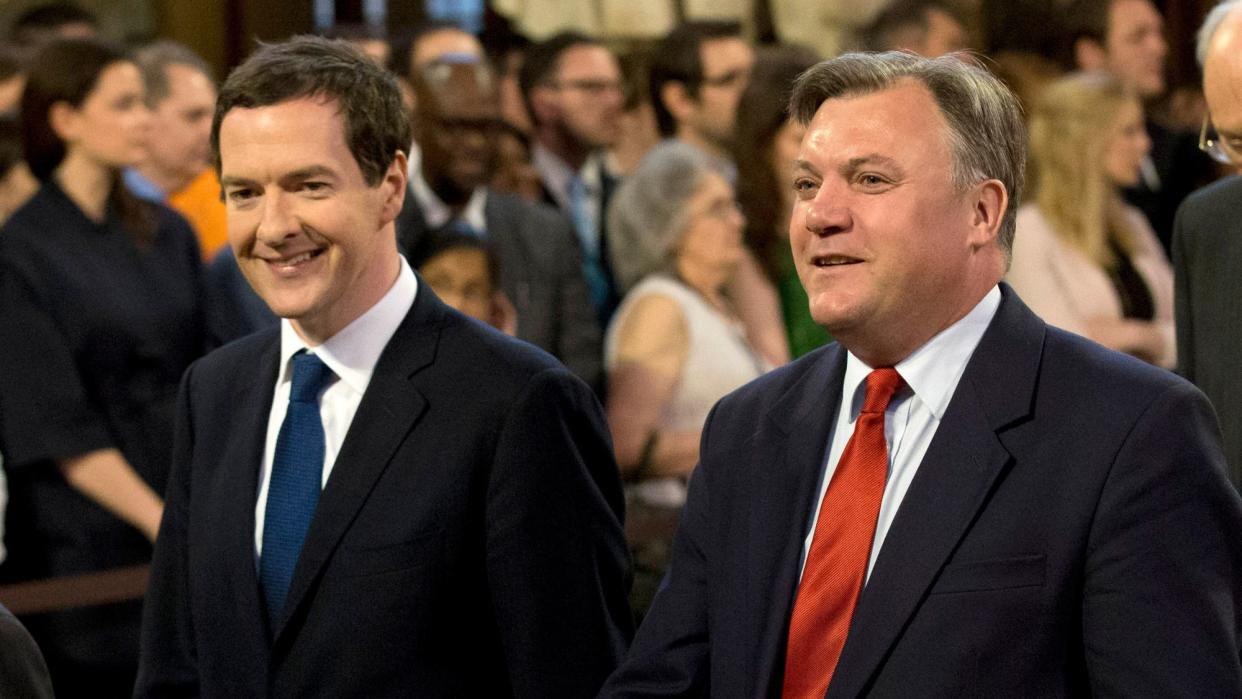The best politics podcasts

- Oops!Something went wrong.Please try again later.
- Oops!Something went wrong.Please try again later.
- Oops!Something went wrong.Please try again later.
- Oops!Something went wrong.Please try again later.
- Oops!Something went wrong.Please try again later.
- Oops!Something went wrong.Please try again later.
A highlight of 2023 was "Political Currency", said The Guardian, which has "swiftly" become one of the "most fun" political podcasts going. Ed Balls and George Osborne's double-act has grown into a "brilliantly gossipy take on world news, stuffed with some absolute gems of insider titbits" (such as the time the Tories feared that their days might be numbered "because David Cameron's son pooed in Rupert Murdoch's pool").
Once political podcasts "came into fashion" they began to "provide a whole new way to do the news", said Time Out, and it made current affairs, "dare we say it… fun". A lot of shows "chat about the American government", but that's because "the world has been obsessed with the genre" since Donald Trump. One podcast that's "very much born of the Trump era", but "still going strong", is "Can He Do That?" from the Washington Post. It was launched in response to the 45th president's "continual stomping over presidential norms", but "fear not", the show has "deftly made the move to the Biden era". There's "no better podcast" about "presidential power in the current era".
If you like your politics with a bit of humour, then "The Problem with Jon Stewart" is a podcast for you. Known for "The Daily Show", the host is "nothing short of hilarious", but "really knows his stuff". Stewart's "mantra" is tackling political problems that are "too big for TV", meaning they're "too complex and nuanced for a news broadcast". The hour-long episodes are "guaranteed to make you howl".
When it comes to British podcasting, politics seems to be king, said Patricia Nicol in The Sunday Times. Alastair Campbell and Rory Stewart's "The Rest is Politics" consistently tops the charts, and now has an interview offshoot show, "Leading". "The News Agents" (with Lewis Goodall, Emily Maitlis and Jon Sopel) has become "a daily fix" for many. A more "knockabout" podcast, "The Trawl" – a scroll through the news via Twitter with Jemma Forte and Marina Purkiss – has found a loyal audience. So too has "Novara Live", an alternative news bulletin "for those whose leanings are more Corbynite than Conservative". Its popularity reflects the move away from traditional media by younger audiences.
Politics podcasts are indeed big business, said James Marriott in The Times. But long before the "sold-out shows, the swanky studios and the wodges of cash", there was the late and much-lamented "Talking Politics", a "charmingly cerebral" show from academics David Runciman and Helen Thompson. Now they are back, but separately – "Lennon and McCartney are not reuniting". Runciman's venture is called "Past Present Future", and it continues in the "impeccably highbrow" and invigorating tradition of "Talking Politics". Thompson's new show, hosted with Tom McTague, the political editor of UnHerd, is called "These Times", and is "the slicker, more commercial proposition". The duo's personalities mesh nicely – "McTague the chirpy journalist; Thompson the drier academic" – and they are unafraid to disagree.
As an "ethically minded" critic, said Marriott in The Times, I try to avoid reviewing shows by my "splendid and charming" colleagues. But it would be perverse and "foolish" to ignore "How to Win an Election", the terrific podcast by The Times chaired by Matt Chorley, timed to lead us into an election year. The panel is made up of a trio of election strategists from the three main parties: Daniel Finkelstein, who has worked with several Tory leaders, Polly Mackenzie, who worked alongside Nick Clegg in Downing Street, and Labour's Peter Mandelson. Chorley sets a buoyant fast pace; Finkelstein brings his "political mega-brain" to proceedings; Mackenzie has a quick wit; and Mandelson slots in as a "drier, downbeat presence". What sets it apart from other political podcasts is that it's funny, with a bit of a "Have I Got News for You" vibe. "It's fantastic. I'm not just saying that."
The twice-weekly "Pod Save America" has been combining political commentary with comedy since 2017, said Fiona Sturges in the FT. It's chatty, clever, unashamedly partisan (a left-liberal answer to right-wing talk radio) and extremely funny. Now there's a British version, "Pod Save the UK", and it's got off to a cracking start. The Guardian journalist Coco Khan and comedian Nish Kumar have "chemistry and an unruly energy, and the ratio of serious to funny is expertly judged".
Other popular politics podcasts worth seeking out include "Oh God, What Now?" and "Rock & Roll Politics", said Rachel Cunliffe in The New Statesman. Plus, aimed squarely at political junkies, "The Power Test" is a terrific podcast from Ayesha Hazarika, a former Labour special adviser, and Sam Freedman, a former Conservative (now left-leaning) adviser. The focus is on the path to a future Labour government and what the party should do if elected. Hazarika and Freedman both "delight in being self-confessed policy wonks" and make a fun pairing. "If you're a political obsessive too, you'll adore it."
The Week Unwrapped
Have you missed the biggest news of the week? Or at least the stories which will shape our lives in years to come, when the passing hype of the day's headlines have faded from memory. That's the premise of The Week's own award-winning podcast, "The Week Unwrapped", which seeks out under-reported stories with unexpected consequences, from the world-changing to the small but personally significant.
Listen to The Week Unwrapped on: Spotify | Apple Podcasts | Google Podcasts

